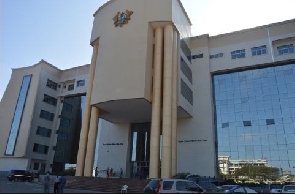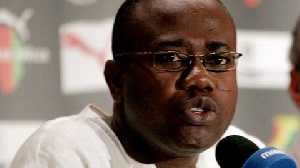Demand for future borrowings to pay power producers for today’s COVID-19-induced freebies is likely to exacerbate the country’s already precarious debt profile and push Ghana into a sovereign financial crisis if adequate measures are not taken, Dr. Jerry Kombat Monfant, President of MBIC Group – a management and strategy consulting firm – has said.
Government expects to pay power producers around GH¢1billion for the three-month free electricity for lifeline consumers and the 50 percent subsidy for other consumers announced by President Nana Akufo-Addo last April, as part of efforts to alleviate impacts of the novel coronavirus on Ghanaians.
However well-intentioned, Dr. Monfant – a global strategist and economic consultant, believes that the intervention will only go to worsen the existing plight of the economy, which according to him was already ailing before the country recorded its first COVID-19 case on March 12, 2020.
“Very sadly enough, Ghana seems to be getting to a dead-end as far as future borrowings are concerned,” he told the B&FT, adding: “Ghana is heading to sovereign financial crisis if adequate measures are not taken to address a seemingly imminent situation”.
In 2019, Ghana’s debt to GDP was 64 percent – above the internationally accepted threshold for developing economies of 60 percent of GDP. This, however, is likely to increase substantially this year, according to Dr. Monfant, on the back of the recent US$1billion International Monetary Fund loan, the power subsidy programme, the collapse in oil prices, and the slowdown in economic activity due to the coronavirus pandemic, among others.
He therefore fears that demand for future borrowings to settle energy producers will likely exacerbate the current economic plight if government fails to find innovative sources of funding other than borrowing.
Dr. Monfant estimates the country’s borrowing needs at between 15 percent and 20 percent of Gross Domestic Product (GDP); and that revenue, which is mainly driven by taxes, is about 10 percent of GDP. This, to him, paints a grim picture; because borrowing in a well-structured system need not exceed revenue.
His worry is also born out of the fact that the country’s debt affordability as measured by interest/revenue is estimated to exceed 40 percent in 2020 – which means that 40 percent of total revenue will be used to pay interest on loans alone.
This, he explains, does not bode well for the economy in terms of investments, as lenders and investors will not consider investing in an economy whose ‘back-end ratio’ exceeds 36 percent of interest over revenue, which is the generally accepted threshold in the world of international finance.
Click to view details



Business News of Monday, 11 May 2020
Source: thebftonline.com

















